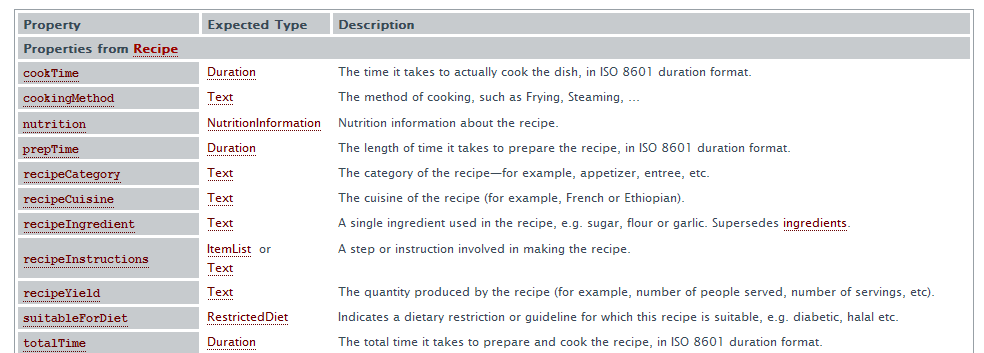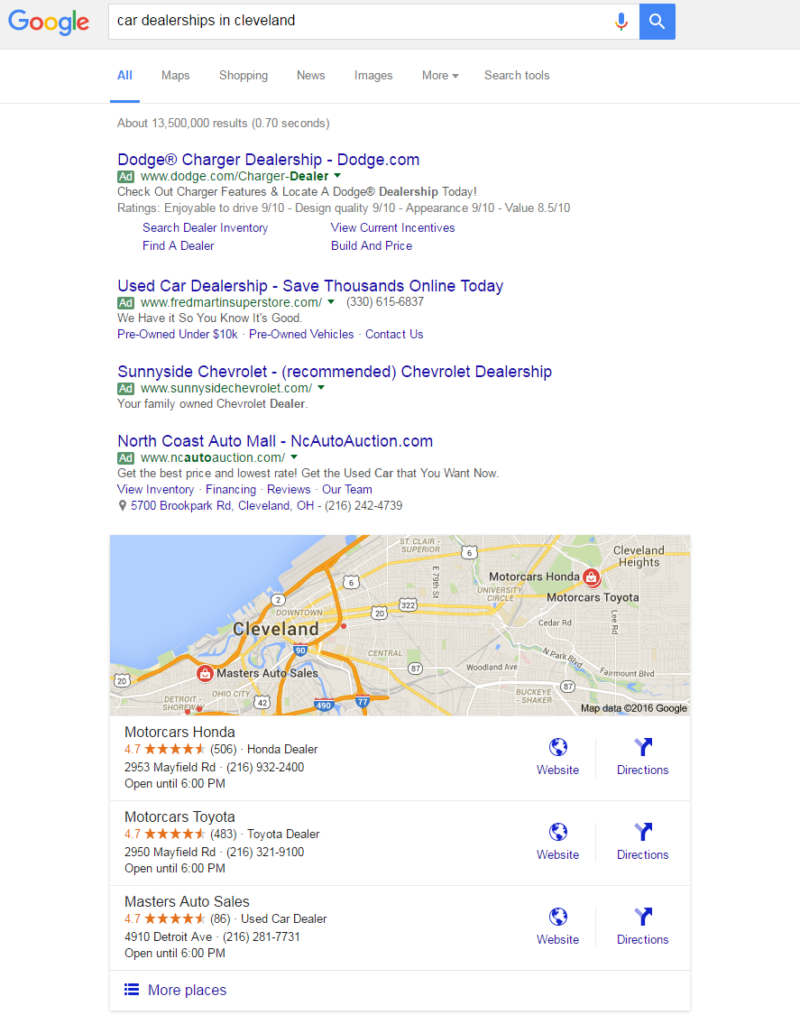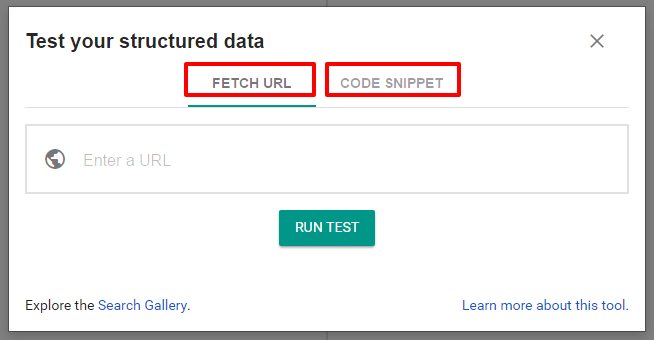
Structured data is text-based organization of information in the code of your website that helps search engines clearly identify events, organizations, restaurants, products, and more. In other words, it makes content on your site machine understandable.
It was introduced to developers and website owners more broadly through Schema.org, which was launched in 2011 by the big three search engines (Google, Yahoo and Bing). Competing search engines don’t often work together on a project. However, they wanted a more standard approach to understanding information across various online applications.
Search engines take this marked-up code and use it to make connections between things, for example, a recipe and it’s review ratings. They then use this information to enhance the search results. Here’s an example:

Notice, the code explicitly calls out the recipe name along with the average rating and total number of reviews for the recipe. This is how Google translates the markup of that data in the search results:

Notice, there’s additional data that was marked-up.

The search results show the amount of time it takes to make the recipe and the number of calories per serving.
If you searched for a recipe, would you be more likely to click on a result with review ratings, cook time and calories, or one like this?:

It looks like McCormick marked up their company name and recipe cook time, but nothing else. I’m guessing this search result wouldn’t get your attention quite like the Allrecipes one. Which means you’re less likely to click on it, unless you’re looking specifically for a recipe from McCormick.
Here are some additional schema properties you can use for marking up recipes:

Recipe data doesn’t apply to your website? There are many schema types, you’ll just have to determine which type(s) fit.
Structured Data for Your Website
It’s important to choose the right markup tags for your specific vertical or industry. Below, I’ve listed some common website types along with the structured data that should be used for each.
E-Commerce Sites

Notice each of the results have slightly varying markup, with some overlap. In this particular search it appears Best Buy has the most robust structured data.
Properties to include for E-commerce:
- Product Rating
- Product Reviews
- Price
- Availability
- Similar Products
Local Business Sites

Here, we don’t see much variation in the search results. This is because, when searchers are looking for local businesses, structured data is imperative. Businesses that don’t have it probably won’t show up in search results.
Properties to include for Local Businesses:
- NAP (name, address, phone number)
- Reviews
- Hours of operation
- Price range (not relevant for some businesses)
Events

As you see, there is more variation in these results. There are fewer sites utilizing markup for events–Schema reports that there are between 100,000 and 250,000 domains using it. That is a small percentage of websites. Expect this number to increase drastically as search engines continue to push structured data and develop more creative ways to display their results. If your business or organization has events, get ahead of the curve and implement this now.
Properties to include for Events:
- Rating/Review of ticket broker (not applicable for all events)
- Date
- Performer
- Location
Booking Travel

Notice, the search results for hotel rentals have a similar layout to the results we had for local businesses. You’ll see the searcher can filter by dates of their stay so they only get results for hotels with vacancies.
Properties to include for Travel:
- Availability
- Price
- Rating
There are additional properties for each of the types I mentioned above. Check out Schema.org and consult with your developer to ensure you markup as many properties as apply to your business.
Implementing Structured Data
Implementing structured data on your site doesn’t guarantee that search engines will choose to display the items you’ve marked up. It does, however, increase the chances that your content will be displayed in rich snippets (cards) and/or knowledge graph cards, when it’s deemed relevant to the searcher’s query.
Structured Data Formats
Search engines accept the following markup formats/syntax:
- JSON-LD (Google endorses this as their recommended format) (Joe Hall created this awesome free tool for generating JSON-LD Schema)
- Microdata
- RDFa
Once you choose a format, you’ll probably need to work with your developer to markup the text. If you are marking up the data on your own, use Google’s Structured Data Testing Tool to ensure proper implementation. You can either enter the URL of the page you added structured data to, or enter the snippet of code.

Structured data is only going to become more important as search engines seek to make their search results better and more visually diverse. If you haven’t considered implementing it on your website, I urge to you make it a priority. If you’re not sure how to do it, or you don’t have the time, get help from your web marketing team, or developer.
In addition, keep an eye on the search results to see how they are adapting the use of rich results and knowledge graphs. Do a search regularly for some of the terms your audience is using to find your business. Take note of how your business is appearing in the results and make improvements for increasing your search visibility and click-through rates.
In an industry I didn’t mention? Let me know in the comments below.
Checklist for Structured Data Implementation
- Check out Schema.org to find the best markup opportunities for your business.
- Work with your developer to markup as many properties as possible that apply to your business. If you are doing the markup yourself, use Google’s Structured Data Testing Tool to ensure proper implementation.
- Monitor search results to make sure your marked up pages are showing up as expected.
- Perform regular searches on terms your audiences is searching on and look for opportunities to improve your brand’s visibility with structured data.
